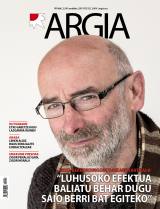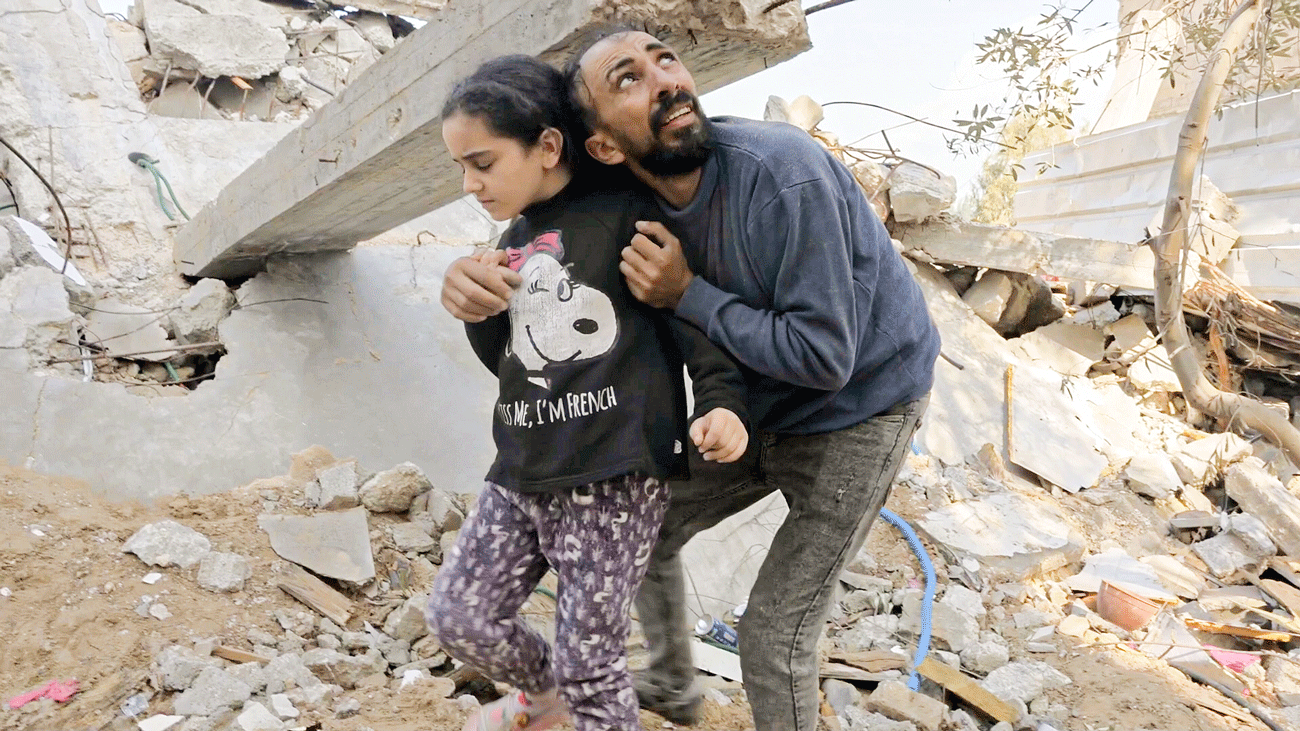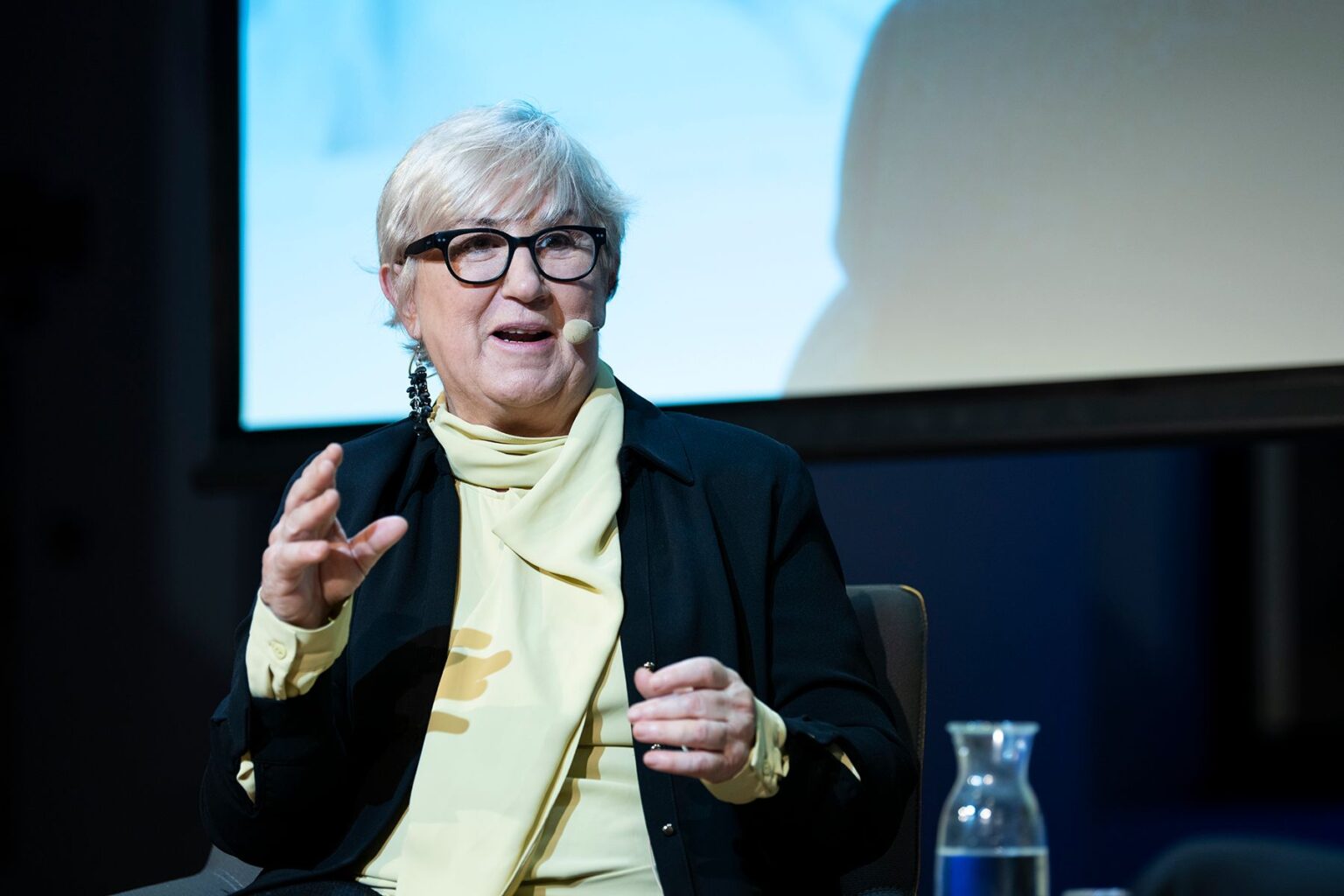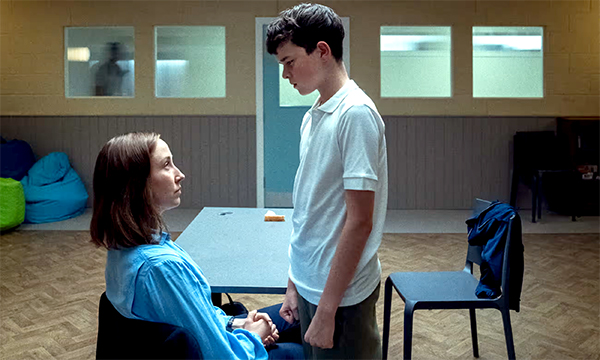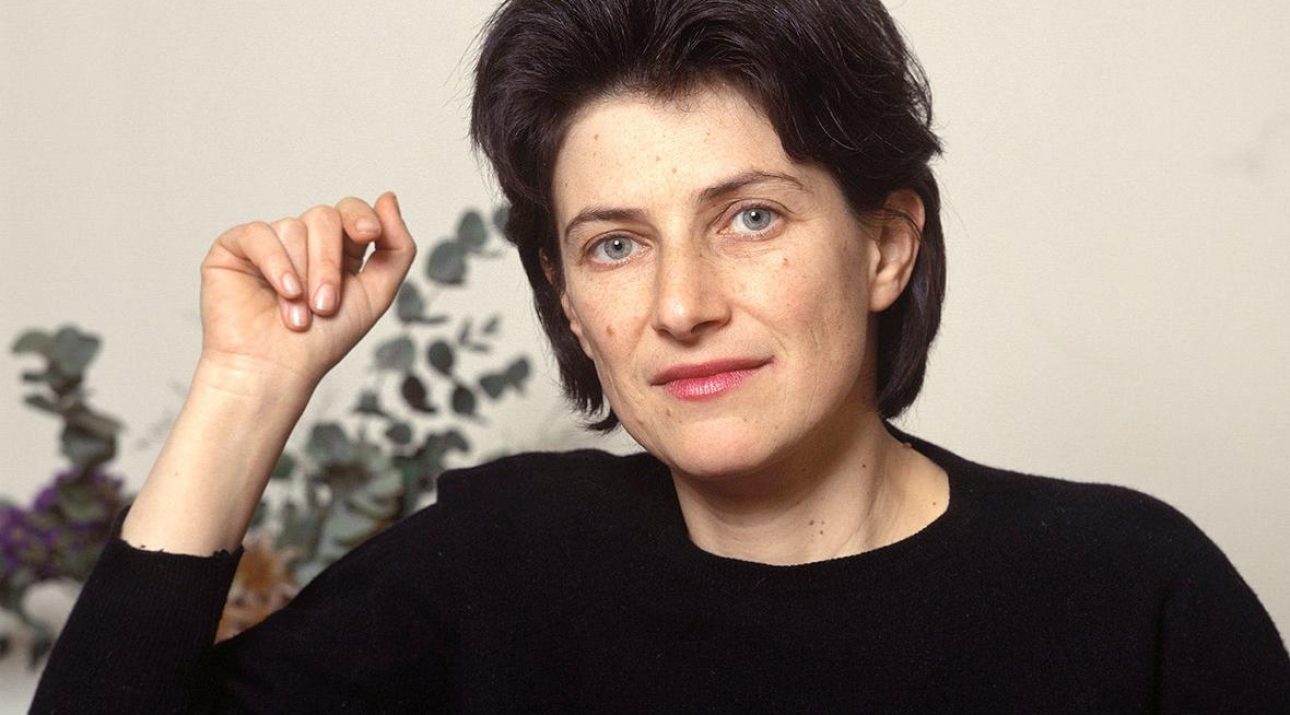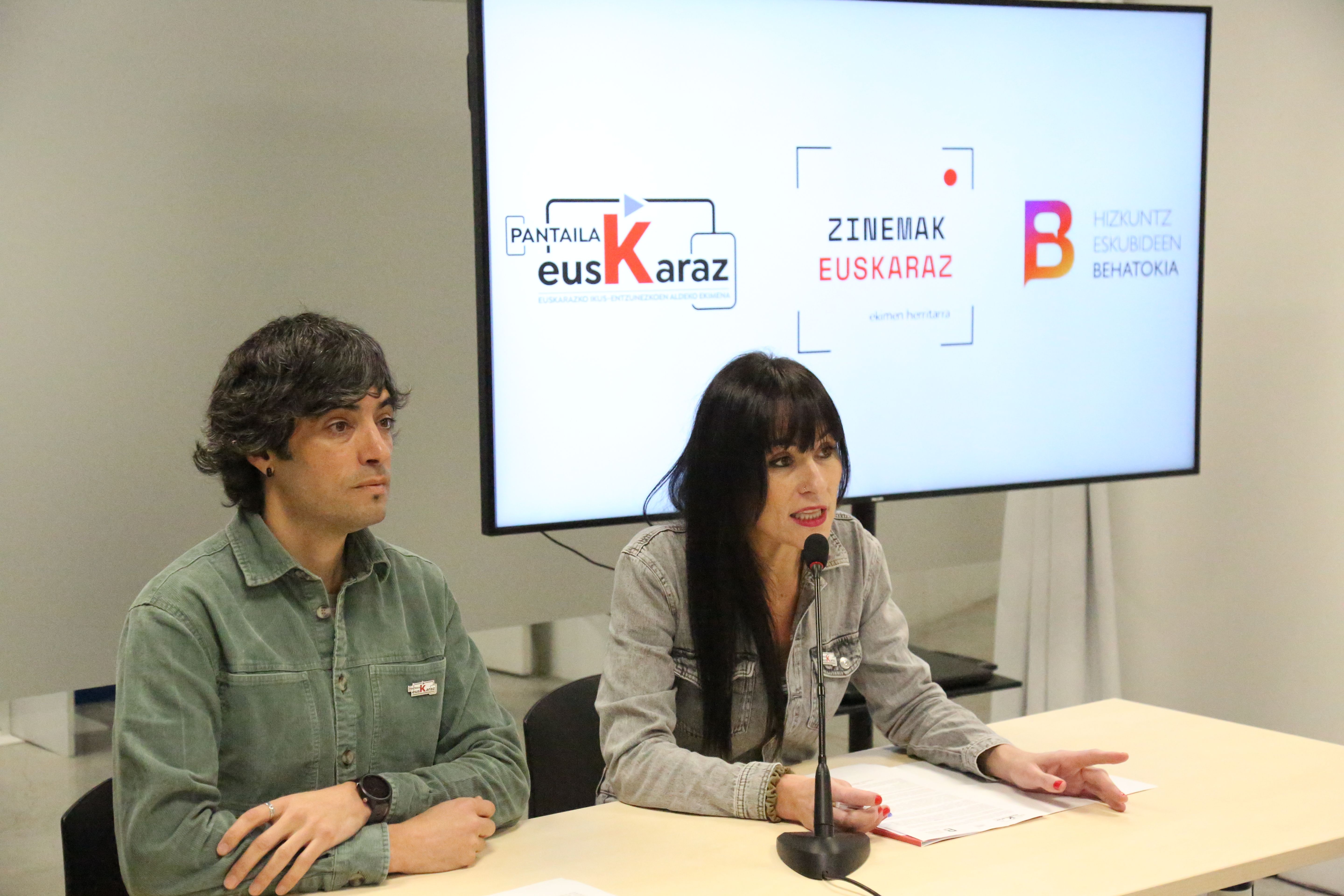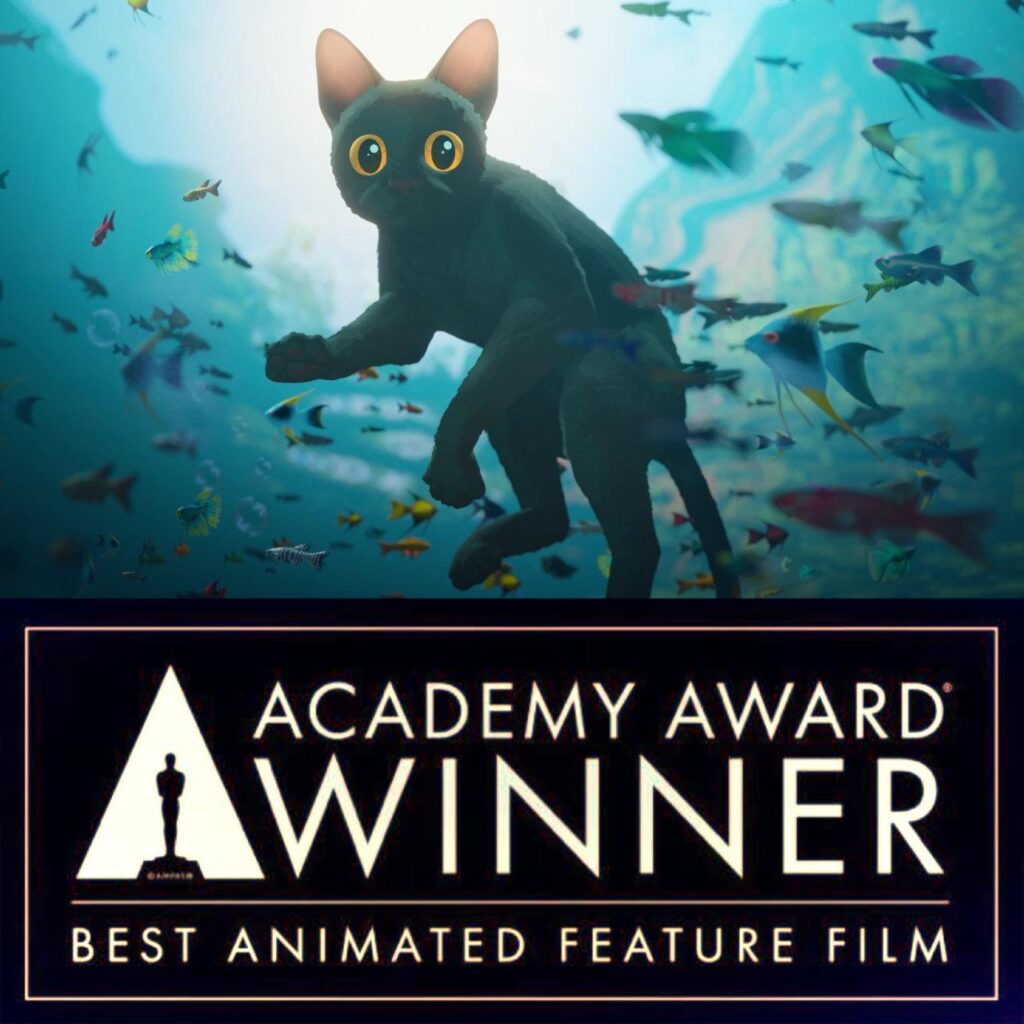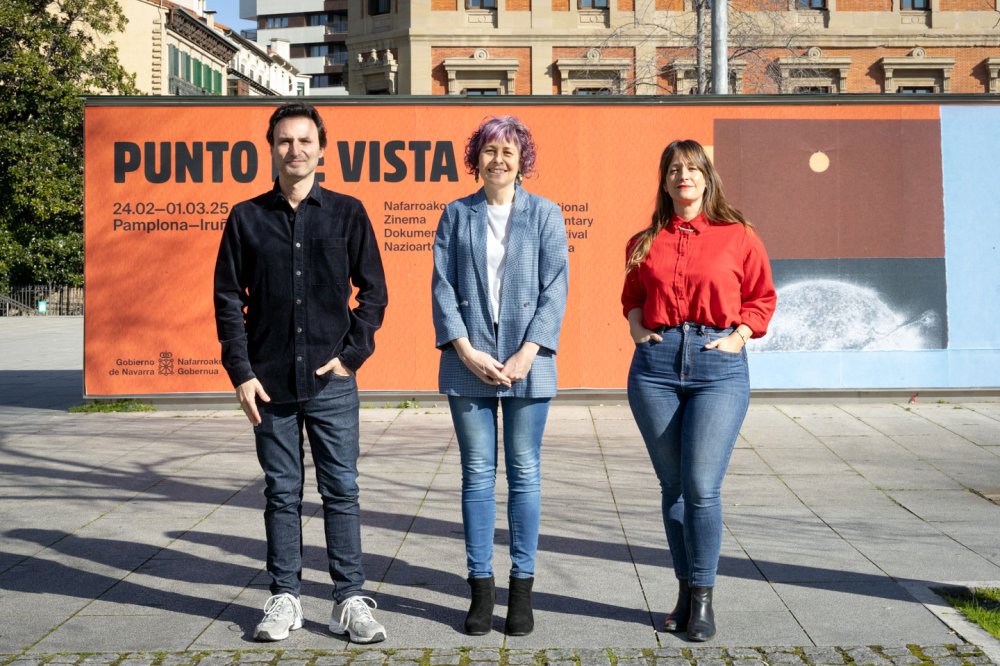"They produce wine and machine tools with Eusko Label, why not film?"
- In 1978, Mirentxu Loyarte performed the Irrintzi short film. Being a pioneering film in Euskal Herria, it should be in the imagination of all of us; however, many of us who met in Zinemaldia last year, almost 40 years later, thanks to the documentary Irrintziaren oihartzunak. Amazement, illusion, incredible. We met him so that dialogue and memory are not interrupted.
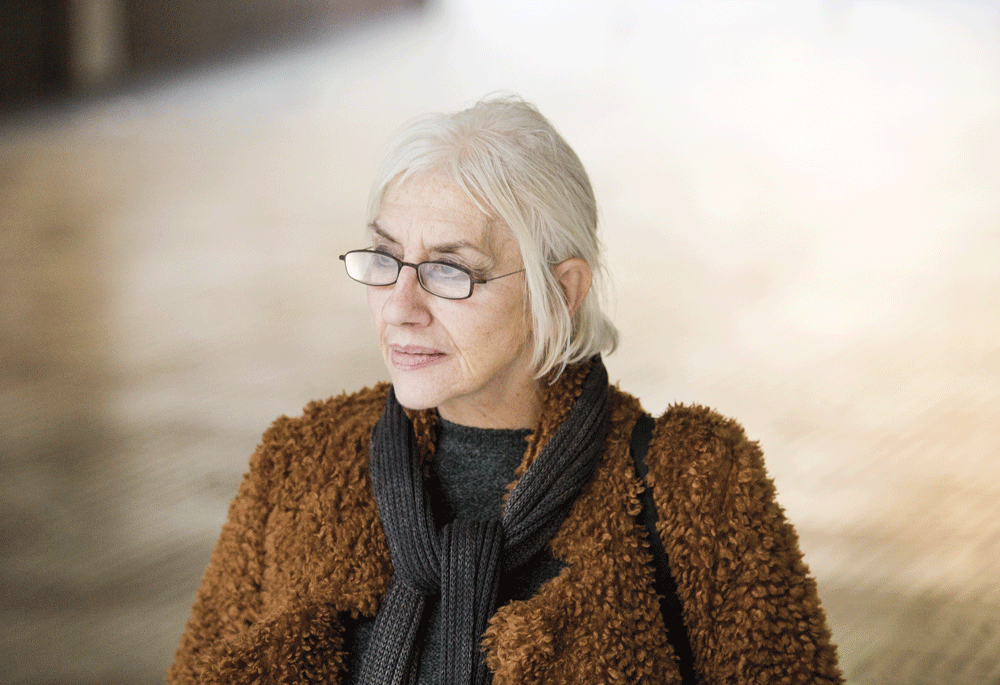
Zinema-ikasketak egin zituen Parisko CICF Zinema Independentearen Frantziako Kontserbatorioan. 1978an zuzendu zuen lehenengo film laburra, Irrintzi, eta Espainiako Zinematografiaren Kalitatezko Sari Berezia jaso horri esker. 1981ean, euskal emakumeari buruzko dokumental bat egin zuen, Ikuska sailaren barruan. Arrazoi politikoak tarteko, 80ko hamarkadan Venezuelara joan zen, erbestera. Euskal Herrira itzuliz geroztik kulturaren alorrean aritu da. Iaz, haren ibilbideari buruzko dokumentala aurkeztu zuen Iratxe Fresneda zuzendariak: Irrintziaren oihartzunak.
How did you start in the movies?
I've always written it and I've made drawings, because I love it. So, I kept writing, and as a young man, I wrote a not-too-long novel. I was about to be sent somewhere to read it, and then the one who walked with me, the one who later has actually walked with me, told me that that was not a novel, that it seemed like a movie.
Why was this episode so decisive?
That's it. Why does one route be interrupted and another one starts? Well, while I was writing the novel, I would go back a thousand times on the topic of silence and I was very fascinated: every time I said the characters had shut down, I had to write a lot of words to make the silence look. That was like a tic, it bothered me a lot. So they told me it was film, and I saw it clearly.
“I think the current generation is quite ‘light’, very hard-working, yes, and the situation is not easy. Perhaps the fault lies with the previous generation, perhaps all the strength they put into that approximate freedom.”
So what was the next step?
At that time, Paris was the main center of cinema; besides, nationalism was very strong, especially in some areas, and, well, going to Madrid, well… It is true, Paris also has its own, but to me the history of Paris did not influence me so directly, so I thought to go there. The first year I was working the language, I had already learned something in high school, but I had to improve. In addition to the official IVEC film institute, there were several schools, and I studied film and film management in one of them, at the French Independent Film Conservatory. Interestingly, it was also there that I was the only girl.
What life had that been?
Great. At the time, what I needed most was to know what I was doing, to stop drifting. Because for those who have not lived under Franco it is difficult to understand, because the last stage does not seem so violent, so hard, it seems that nothing happened. But that was the problem, that absolutely nothing happened, that is, that you couldn't know what you were doing and what you saw elsewhere, there was no comparative model. You can't compare your ideas to other ideas, and when you don't have a point to compare them, you don't know where you are and how much you're missing.
It was a sacristy. When they mention Pinochet I always think yes, that at first it was as crude as Franco, because the first wave of all revolts is the hardest, but Pinochet was eleven years in power and here grew two whole generations under Franco, in this total sacristy.
And in Paris, what did you find?
I was there in the late 1960s, and it was a great time. I arrived a few months before May 68 and was stunned. For example, the media: there you saw extraordinary headlines, but we were accustomed to everything having a kind of skateboard that would cover everything and give all the same color and nuance.
The film school came really good for me to make the contacts, and I swapped all the Cinematic until I got indigestion. There they were doing extraordinary cycles, and I saw everything.

Do you especially remember something you've seen in the Cinemateca?
I became completely fond of Dreyer. I didn't know her before, but I saw a movie and I loved it. Then I saw all of his films, and I remember that the ticket vendor had finally recognized me and, to put it, staggered: “Aren’t you really going to like Dreyer?”
Sometimes it's hard to explain that fascination, but let's see, for example, Dreyer's Ordet movie. The staging is absolutely basic, the barely perceptible movement and yet what game it does with light! The dead person is in bed and suddenly there is the miracle of the resurrection. How can I believe it? And I thought, yeah. I thought it was terrible. Of course, others teach you the same thing differently and don't believe it at all, that's the key.
How did you find yourself when you came back from Paris?
I came here anxious, ready to eat the world. That proves that I'm optimistic about life, nothing else. I don't remember the year, but I know they had already done Amalur. I really liked it and I got in touch with [Nestor] Basterretxea, and then I met [Fernando] Larruquert. We got it right from the start.
Basterretxea told me it was a script and I wondered if I was going to read it. It was a work on Theodosius de Goñi. I explained to him my point of view, what I liked and what I didn't, and he really liked it. He tried to carry out the film, but he did not get any source of funding. We then tried to make other short cuts, but we did not get any money for it, as has happened with other projects.
“Now I’ve learned that Kimuak’s works are being given away, how the sweets are being thrown into the baptisms.”
When and how did you do Irrintzi?
I had to extricate myself in Venezuela and when I returned I made the film. All of this came about in the same way that all of the projects emerge, in a somewhat rough way. I was asked for a script. Because I was a little abstract, I was asked to come along in the direction, and nothing else. We have all done work without our name, when no one's name appears, but I have made the film myself and then another signed it? By no means. Twenty days later, the one who was a director said he was not going to make the film without my help, and in the end I directed it.
What was the process like?
I was clear about what I wanted to show: that emotion, right before I screamed, or when you're in a demonstration and you take a stone, and you pause for a moment, not knowing whether or not you should. That emotion where you leave a little bit of despair. I didn't want to show any manifestation, no, I wanted something more abstract, people to feel that other emotion.
Of course, as it was the first thing I had in my hands, it was a hard process. At first you’re very sure and then full of doubts: if you’re wrong, if you’re wrong, if you’ve gone too far… Especially with these unrealistic things: I really like those poetry, but then it can be too ethereal. He walked very carefully. I was full of doubts, moving forward and backward, looking through and looking through this and that.
It was warmly welcomed, at least in the beginning.
Yes, the other time a journalist told me that the curiosity he woke up that year in Zinemira was spectacular. What came later, however, the director of that time of Zinemaldia would explain it to you better than I did. The civil governor of the time had left for the San Sebastian Film Festival, saying that I had to stop because Irrintzi was pure propaganda. Meanwhile, I was walking around the city. The case is that the director convinced him not to arrest the governor: When Franco died, the European media were attentive to how the Spanish State reacted to the first lapse. They didn't take me, and yet after the Festival, the film was buried with eleven locks and completely forgotten.
Did it hurt you a lot?
Think about it! When you do something, you want people to see it, and in addition, at that time it was the way: to make short and try to play at once. That was your presentation to keep working, to get more projects, etc.
Back then, in Punto y Hora magazine you said that the Basque culture needed film and that, however, we had it abandoned. Why do you think cinema is so important?
How do we leave the image in a corner? It is essential. In addition, it seems to me that we are getting along well, that it is very much in line with our worldview. Film, after all, is a way of looking at the world. For example, I remember the Flowers. It’s a movie and you may or may not like it, but there are moments in that movie where it’s a kind of geometric game: light, camera movement… Normally, after watching a film we don’t remember more than a piece, and if the director gets it to last a piece, and the rest doesn’t delete it, he’s got more than he thinks.

It's been several years since you said it. Is it still there?
We are at a very different time, of course, but in my opinion it is a lack of infrastructure. I don't understand how you sell machine tools or wines or whatever with the Eusko Label, and how you can't do the same with other things, like film. It doesn't have to be an amazing infrastructure, but yes it would be, se-ri-o: you'll need about three years to find the market, etc., but once you've done it, it can be redirected.
I have now learned that Kimuak’s works are being given away, as the sweets are being thrown into the baptisms. It's a way of underestimating jobs: the worst sale, that's a gift. You can give it to a friend or another to know it, but nothing else. When you have to sell the machine tool, you know what to do, right? They don't give away for free.
He also carried out a work in the Ikuska section, dedicated to Basque women.
Antton Ezeiza organised Ikuska very well, a small but high-quality equipment. He asked me if I would do something and what I would do. I had two issues in mind: one, the most interesting one for me, was that of the party, as a concept of party, from a sociological point of view, but it seemed very difficult to me, and I put myself in the other option, that of the Basque woman.
Many years have passed since the recording of this chapter on the situation of women in the Basque Country. Has the situation changed a great deal?
Have you seen that Ikuska section? The truth is, I'd like you to tell me what you think.
I think there are things that are today. As one of the adult women mentioned in this section points out, we seem to be freer in many areas, but we are really not as tied as ever…
That's it. We have to do detailed analysis, and see that there are differences, that it's not the same thing to have a nice freedom of operation than to be really well-rooted in your freedom. This path that we've traveled can be destroyed by four blows, because of the crisis, because, of course, you know you're not going to leave the child hanging on a hook, so you're going to go back to the guard.
Do you have a right? Yes, of course, but there are times when that's not worth it. I think the current generation is pretty light, very laborious, yes, and the situation is not easy. Perhaps the fault lies with the previous generation, perhaps with that approximate freedom in which they put all their strength, but we have to lay the foundations, otherwise tomorrow they will take it away from you.
Last year a documentary about your career was released: Echoes of the irrintzi. What kind of experiences have there been?
Well, I didn't know Iratxe, and she didn't know me either, just my own movie. However, when he called me he did not ask me about my life; after all, my life is like that of everyone, goes and comes, sometimes he gets things and other times he escapes. Iratxe, however, told Irrintzi: he found it and he thought it had to come out, he didn't understand how he was forgotten, how he had not known it before. Of course, it caught my attention, we got to talk, and that's what happened.
Elkarrizketa egin bitartean, alboan izan dugu Iratxe Fresneda zuzendaria. “Dokumentala egiteko, denbora mordo bat eman genuen biok solasean, eztarria ahitu arte”. Solasaldi horien pusketak dira dokumentalaren oinarrietako bat, eta hala ere “Mirentxuren aipu pila bat geratu dira kanpoan, orduak!”.
No other land dokumentalaren zuzendari Hamdan Ballal kolono sionistek jipoitu zuten astelehenean bere herrian, beste hainbat palestinarrekin batera, eta Israelgo militarrek eraman zuten atxilo ondoren. Astarte goizean askatu dute.
Donostiako Tabakaleran, beste urte batez, hitza eta irudia elkar nahasi eta lotu dituzte Zinea eta literatura jardunaldietan. Aurten, Chantal Akerman zinegile belgikarraren obra izan dute aztergai; haren film bana hautatu eta aztertu dute Itxaro Bordak, Karmele Jaiok eta Danele... [+]
35 film aurkeztu dira lehiaketara eta zortzi aukeratu dituzte ikusgai egoteko Euskal Herriko 51 udalerritan. Euskarazko lanak egiten dituzten sortzaileak eta haiek ekoitzitako film laburrak ezagutaraztea da helburua. Taupa mugimenduak antolatzen du ekimena.
Pantailak Euskarazek eta Hizkuntz Eskubideen Behatokiak aurkeztu dituzte datu "kezkagarriak". Euskaraz eskaini diren estreinaldi kopurua ez dela %1,6ra iritsi ondorioztatu dute. Erakunde publikoei eskatu diete "herritar guztien hizkuntza eskubideak" zinemetan ere... [+]
Geroz eta ekoizpen gehiagok baliatzen dituzte teknologia berriak, izan plano orokor eta jendetsuak figurante bidez egitea aurrezteko, izan efektu bereziak are azkarrago egiteko. Azken urtean, dena den, Euskal Herriko zine-aretoak gehien bete dituztenetako bi pelikulek adimen... [+]
Otsailaren 24tik eta martxoaren 1era bitartean, astebetez 60 lan proiektatuko dituzte Punto de Vista zinema dokumentalaren jaialdian. Hamar film luze eta zazpi labur lehiatuko dira Sail Ofizialean; tartean mundu mailako lau estreinaldi eta Maddi Barber eta Marina Lameiro... [+]
A conference for architects has just been held in Madrid to discuss the crisis of the professional architect. They have distinguished the traditional and contemporary way of being an architect. What is traditional? From the epic architect who appears in The Brutalist, where... [+]









